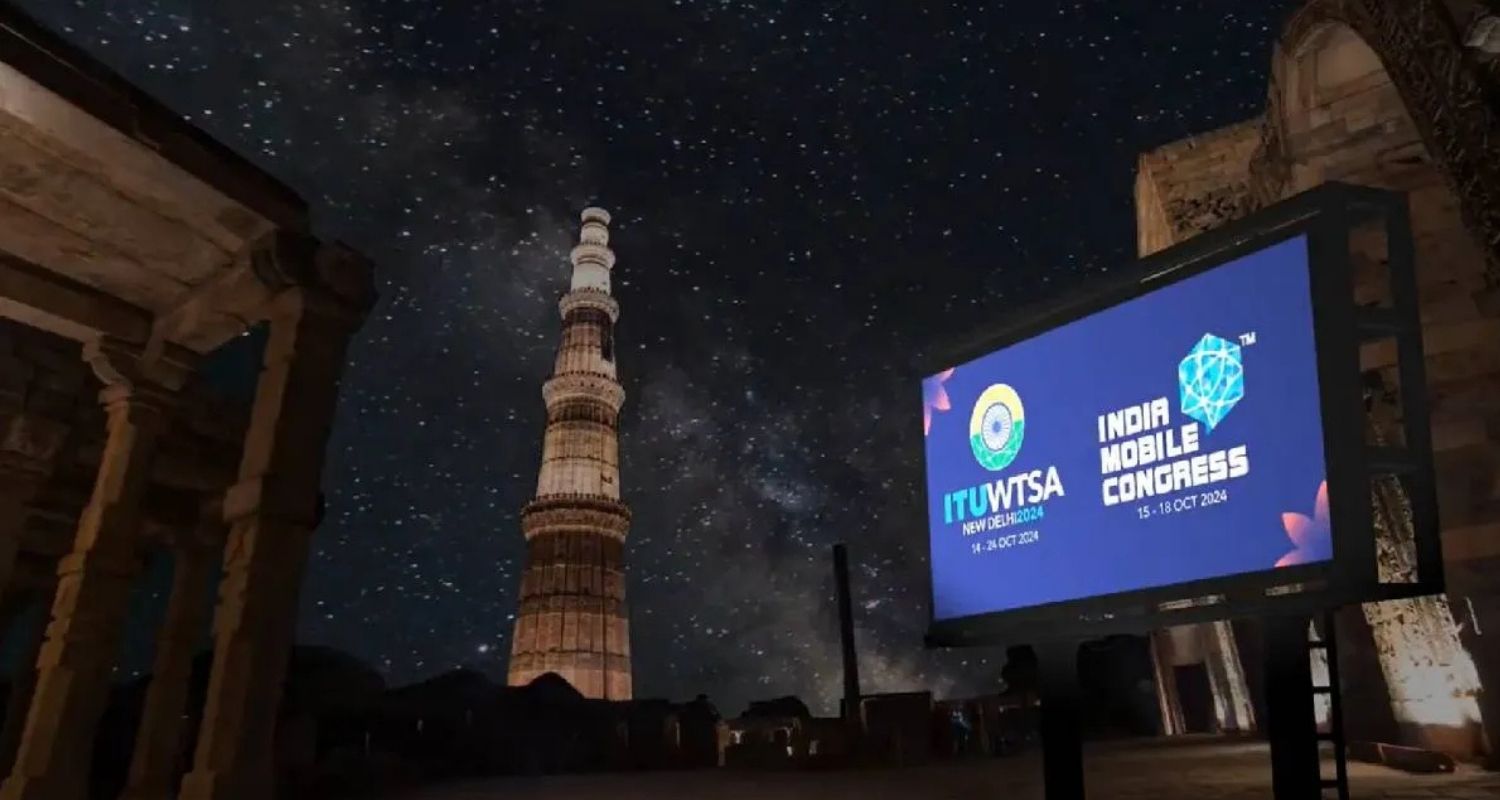Prime Minister Narendra Modi on Monday will inaugurate the India Mobile Congress (IMC) 2025 at the Yashobhoomi Convention Centre in Dwarka, New Delhi, at 9:30 am, marking the start of one of Asia’s largest gatherings focused on technology and innovation. The event is set to highlight India’s advancements in telecommunications and its growing influence in the global digital landscape.
On Monday, Union Minister for Communications Jyotiraditya M Scindia visited the IMC 2025 venue to oversee final preparations. Demonstrating the government’s commitment to sustainable and efficient connectivity, Scindia travelled to Yashobhoomi and back using the Airport Metro, starting from Shivaji Stadium in New Delhi.
During his visit, he toured the expansive exhibition area, engaged with startups and exhibitors, and held review meetings with senior officials from the Department of Telecommunications (DoT), the Cellular Operators Association of India (COAI), and other partner organisations.
Speaking to the media, Scindia highlighted the event’s scale and global significance, stating, “Telecommunications today are the highway and pathway for technologies such as 5G, AI, ML, IoT, and satellite communications to connect not only India but India with the world.” He described IMC 2025 as a key platform that will “usher in a new paradigm for connectivity,” reflecting Prime Minister Modi’s vision over the past eleven years of fostering a self-reliant, empowered, and innovative India that contributes to global progress.

IMC 2025 is expected to draw over 1.5 lakh visitors, 7,000 delegates, and participants from more than 150 countries, with 400 exhibitors showcasing innovations across 4.5 lakh square feet of exhibition space. Scindia emphasised the event’s transformation, noting that the India Mobile Congress has evolved from a national platform into “an Asian and global technology congress,” symbolising India’s rising leadership in the digital domain.
The 2025 edition of IMC will feature six major global summits driving digital innovation. The International Bharat 6G Symposium will highlight India’s leadership in next-generation 6G research through the Bharat 6G Alliance. The International AI Summit will focus on the transformative role of artificial intelligence in communication networks and digital services, while the Cyber Security Summit will address the protection of India’s 1.2 billion telecom users.
The Satcom Summit will explore the emerging field of satellite-based communication services, and the IMC Aspire Programme will bring together approximately 500 startups and 300 venture capitalists, private equity investors, and industry leaders to foster collaboration and investment opportunities.
Additionally, the Global Startup World Cup – India Edition will see 15 finalists compete for a $1 million investment opportunity on the international stage. Scindia noted, “These events together position IMC 2025 as a global confluence of ideas, technologies, and investments – embodying the spirit of innovation that defines India’s telecom and digital growth story.”
Also Read: Modi hails para-athletics record haul: Success will inspire many
Scindia also highlighted India’s remarkable achievements in the telecom sector, stating that the country ranks among the top three digital nations globally, with 1.2 billion mobile subscribers, 970 million internet users, and the world’s fastest 5G rollout, completed in just 22 months. He emphasised India’s self-reliance, saying, “Our strength lies in our ability to design in India, solve in India, and scale in India. IMC 2025 will celebrate this journey of technological self-reliance and innovation.”
He further remarked, “Under the leadership of the Hon’ble Prime Minister, India’s telecom sector has emerged as a beacon of innovation, connectivity, and inclusion. IMC 2025 will be a reflection of India’s digital transformation before the world.”
The India Mobile Congress 2025 is poised to showcase India’s technological prowess and its commitment to shaping the future of global connectivity, reinforcing its position as a leader in the digital and telecommunications landscape.
Also Read: Nobel medicine prize to 3 scientists for peripheral immune work



